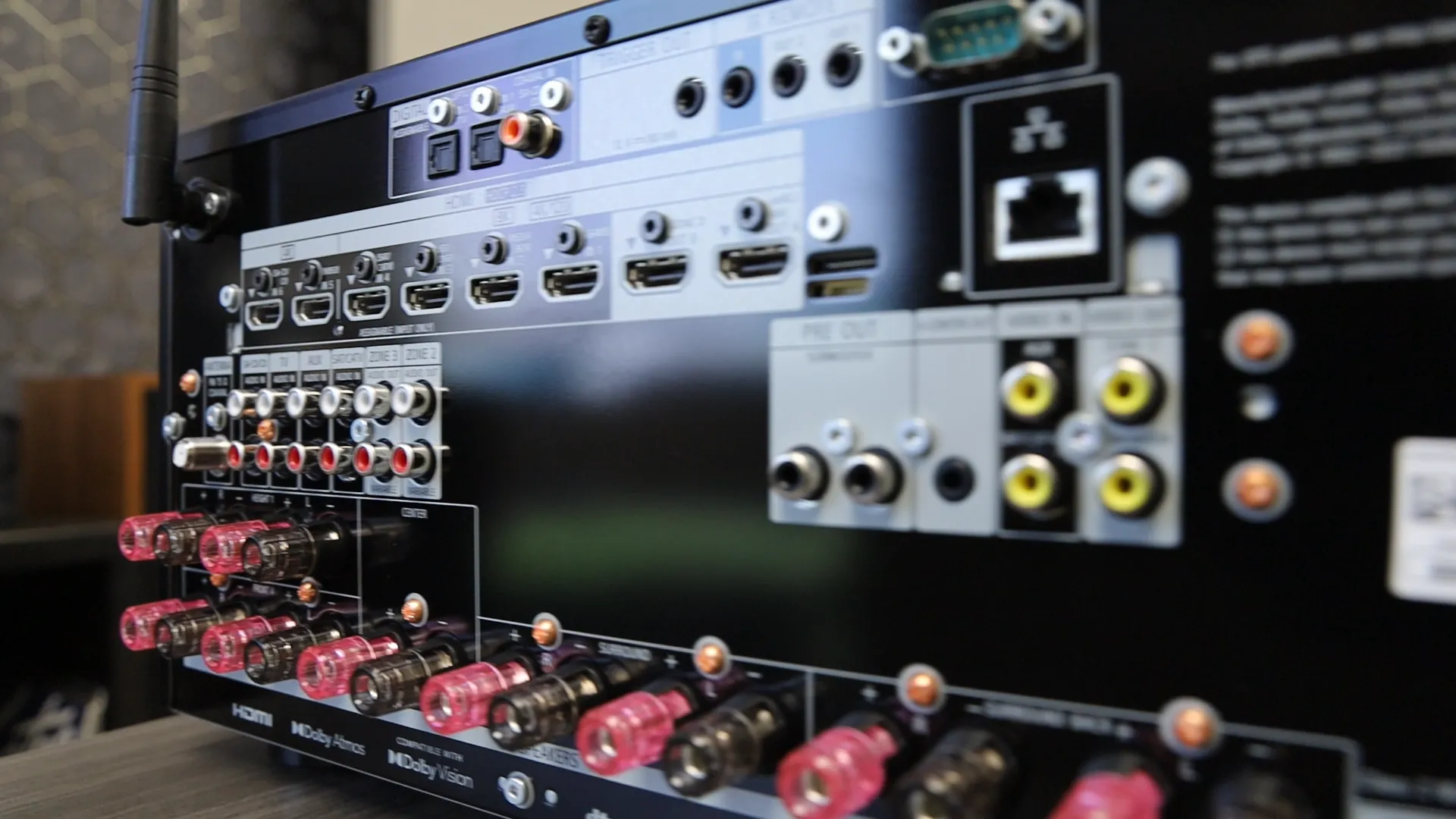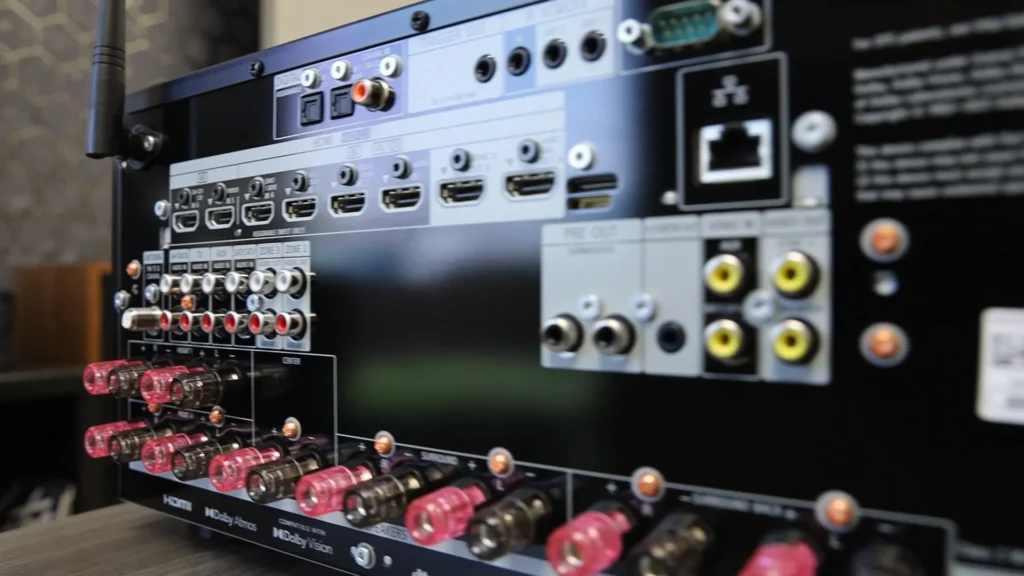

You've just spent thousands of dollars on the home theater setup of your dreams. You have 7.2 surround sound composed of top-of-the-line speakers, an OLED TV, a Blu-Ray player, and more – everything to make watching a movie at home as close to the theater experience.
Except you don't have enough ports to connect your devices easily, making switching between the different outputs a hassle. So now something as straightforward as watching a documentary becomes a mess of remotes and trying to match up settings to get it to play the way you want it to.
An often under-used solution to this problem is a receiver. But what is a receiver, and do you really need one?
Hive has helped clients solve these problems by installing receivers, but we’re far from the only option for streamlining your home theater.
In this blog, we'll cover the basics of what receivers are, their pros and cons, who could benefit from them, and how much you can expect to spend on one if they're a good fit for you.
A receiver, also called an AV receiver or surround sound receiver, takes audio and video signals from different sources, such as your TV, surround sound system, Blu-ray player, and streaming devices, and sends them to their appropriate outputs.
A receiver has multiple inputs and outputs, allowing you to connect and switch between various audio and video sources.
These devices are often overlooked as a major component of a home theater setup, but they serve several important purposes:
Essentially, receivers are a central hub that ensures that all of your devices are connected and in sync without having to worry about running out of ports on your TV or crossing wires in a way that interferes with their function.
Since many people aren't aware of what receivers are, they don't see the benefit of having one. After all, it's possible to connect your devices without one. That's definitely the case for some people. You may not need one if you have a simple audio system with only one or two audio sources, such as a TV and a soundbar.
But receivers are a great fit for more complex home entertainment systems.
If you have multiple audio and video sources and speakers, a receiver can make your life easier by centralizing all your devices. By extension, you can more easily switch between all your devices without having to reconfigure them and can customize them to your needs.
They’re also good for large rooms where a soundbar can’t produce enough volume or clarity to give you the sound you’re looking for.
Some newer models even have options like Bluetooth, Wifi, and Chromecast integrated into the system already, making it an even more convenient option for some.

If you want to get a receiver, it's important to know the pros and cons of the device in more detail.
If you've decided that a receiver is right for you, here are some features to consider when choosing one.
Choosing a receiver with a longer warranty suggests that the manufacturer has confidence in their product’s reliability. Because receivers are such an investment, you don’t want to spend money on something you’ll need to replace in a year.
The heavier it is, the more powerful and well-made it is. If you have a larger room or have powerful devices, a heavier receiver would ensure that you get the most out of your devices.
The number of channels in a receiver determines how many speakers you can connect. For example, a 5.1 channel receiver can power five speakers and one subwoofer, while a 7.1 channel receiver can power seven speakers and one or two subwoofers.
Also, look for one that supports the audio and video formats you need, such as Dolby Atmos, DTS:X, HDR, and 4K.
With the standards for HDMI constantly changing, you don’t want to be left with a receiver that can’t connect to newer devices. Choosing a newer receiver rather than one that’s a few years old will give you more useable years with your device.
The cost of a receiver can vary widely depending on its features and quality. But overall, they tend to be more expensive, sometimes costing up to several thousand dollars. Keep in mind that you may also need to budget for additional cables and accessories, such as HDMI cables and speaker wires.
Popular brands include Sony, Marantz, Harman Kardon, Yamaha, and Integra, though several audio-visual brands offer them. Keep the features that you need in mind as you shop.
A receiver can be a powerful tool to enhance your audio and video experience and simplify your home theater setup. However, it's not necessary for everyone, especially those with simple audio setups.
If you decide to get a receiver, consider its features and your needs carefully to choose the right one for your setup. Ask yourself the following before you buy:
As we said before, Hive isn't the only option for your receiver installation needs in Tampa Bay. But if you're interested in finding out how we can work with you to set up a receiver, you can schedule a consultation with us here.